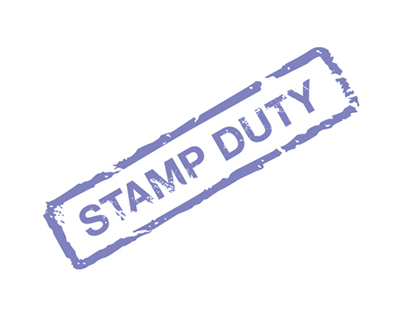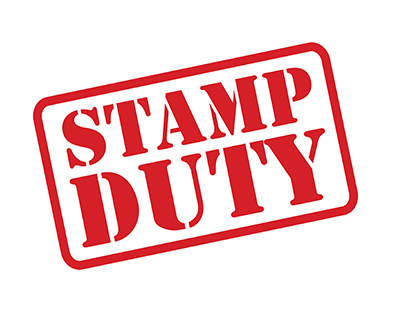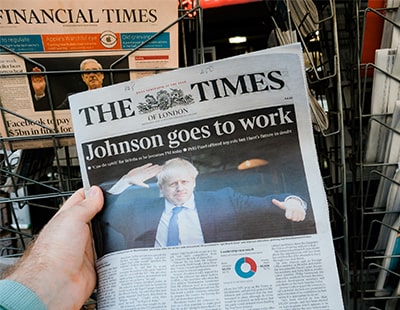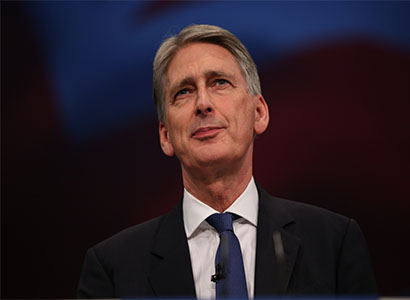
If former Chancellor George Osborne thought his 2014 stamp duty reform would produce more income for the government, it appears he was very much mistaken.
New figures produced by HMRC and analysed by investment consultancy London Central Portfolio suggest that stamp duty receipts fell 8.5 per cent in 2018 compared to the previous year. The duty gathered for HMRC some £8.669 billion - that’s £802m less than a year ago.
Receipts from the Additional Homes surcharge - that's the three per cent surcharge on buy to let properties and holiday homes - dropped 14.2 per cent last year when compared with 2017. The surcharge now contributes 18.8 per cent of the total stamp duty ‘take’ - a year ago the proportion was 21.1 per cent, and the drop reflects a 4.6 per cent fall in the number of buy to lets or second homes purchased.
Of greater success in terms of impact on the housing market - although not in terms of income for the Treasury - has been the first time buyers’ stamp duty relief announced in 2017 by current Chancellor Phillip Hammond.
Some 217,800 FTBs have claimed it, amounting to £517m in 2018. This represents a saving for the average purchaser of £2,374.
But London Central Portfolio warns that take up appears to be plateauing with 60,700 transactions claiming FTBR in Q4 2018, compared with 59,000 in Q3; a rise of just 2.9 per cent, which is much less than earlier quarterly increases.
This useful analysis of the latest stamp duty figures comes with LCP’s most recent analysis of the housing market, which is marked by Brexit-fuelled pessimism.
It says transactions in the whole residential market fell 2.6 per cent in 2018 and now stand at just over one million.
“The fall in transactions reported in HMRC’s 2018 SDLT report reinforces the surfeit of statistics, showing buyers now holding back. The febrile political climate around the UK’s departure from the EU and stagnating prices, have brought ever growing uncertainty to the residential market, following several years of increased taxation” says Naomi Heaton, chief executive of LCP.
“The total revenue for HMRC amounted to £8.669 billion, a fall of almost £1 billion on 2017. Even if the amount of tax claimed under First Time Buyers’ Relief, which the Exchequer would see as a ‘tax giveaway’ was added back, the total take would still be down 3.6 per cent” she adds.
“Until the government has a clear road map for Brexit, we are unlikely to see increased transactions and therefore increased revenues” she concludes.
LCP says that with the housing market in a parlous state it hopes Philip Hammond will not implement an additional levy of one per cent on overseas purchasers, proposed in the November 2018 Budget. “This would seem to be particularly imprudent in light of the UK’s need to build on global investment as it exits the EU” says LCP.

















%20-%20IMAGE%20Client%20Accounting%20%E2%80%93%20what%20are%20your%20options.jpg)


.png)
.png)
.png)
%20(002).png)






%20(002).jpg)












Join the conversation
Jump to latest comment and add your reply
Nothing to do with the stamp duty reforms (outside London)which broadly make it cheaper to move. Just nobody in their right mind wants to move unless they have to in these uncertain times.
Central London has been decimated by Osborne's SDLT hikes and other tax reforms. This is old and obvious news, and the government should have seen this coming; enough of us lobbied them at the time, but as usual, they failed to listen and now they're out of pocket by a lot more than just SDLT revenue. £802m less then last year will only get steadily worse and all the VAT (20%) attributed to each transaction lost on top, and then the fact that those foreign buyers are no longer spending here like they used to. What a chump Mr Osborne was/is!
I am always astonished that the entire industry hasn't kept up a constant barrage against the hideous levels of SDLT. This tax is threatening the entire industry. It is no good saying that lower levels of the tax rate are acceptable when the higher rate is so punitive that it actually has destroyed the entire flow through the market. Billions has been taken out of the business in one stroke and yet you have solutions offered like "downsizers being exempt" utter bunk, This tax destroys deals and prevents most buyers at the upper end from moving, it is the most serious attack on the property market and hence, this country`s well being in centuries. Of course that moron Osbourne didn't see that, nor has his equally moronic successor. It really is very simple, buyers in the main do not have hundreds of thousands of pounds spare to pay huge taxes when they move....so what do they do?...not move of course. This really is that simple, the tax levels make the decision, not the buyer or the seller. It is no good saying that the prices have to reflect the tax, that doesn't work as the levels are more punitive as prices go up, so there is an inbuilt imbalance, aside from the fact that reduced prices still throw up huge SDLT which has to be paid from additional resources not connected to the transaction. Reduction to 1 or 2% is the answer which we know is a workable level.
Please login to comment